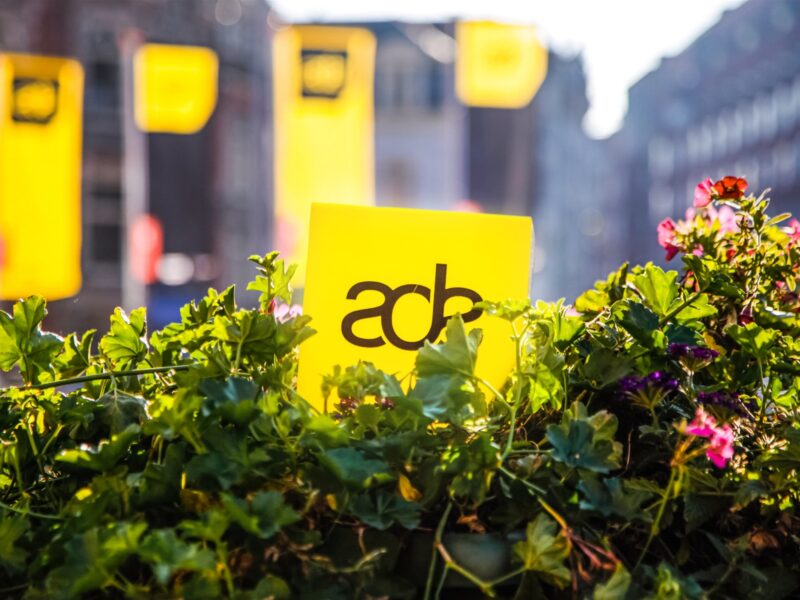
Powerful Thinking Blog: Power Play 2024
This article was originally published via Vision2025 and can be found here.
There have been numerous exciting developments in power supply this year, reducing the carbon impact, and emissions, at concerts and festival sites.
We’re delighted to shine a light on some of the advancements in technology of battery energy storage systems (BESS) trailblazed by several companies, the innovative application of demountable wind turbines and Hydrogen Power Units. All pointing the way to removing fossil fuels from the festival ecosphere.
Coldplay’s Music of the Spheres World Tour captured the headlines not only for the music, but the Showpower SmartGrid power system, co-developed with ZAP Concepts, which has powered over 50 stadium shows so far, including all 33 stadium shows across the 2024 European leg of the, taking in 10 Cities through nine Countries. The Coldplay system has also just been confirmed for deployment at the Global Citizen Festival on 28th September, as part of Climate Week NYC.
Paul Schurink, CEO and Sustainable Power Expert at Showpower Global, commented, “During the last four years, Showpower’s collaboration with Coldplay has allowed us to continually trial the SmartGrid battery system and test our industry-first Proof of Concept in a highly pressured live environment across multiple international stadium locations. By doing so, we can now guarantee a reliable, sustainable power solution for global touring artists, promoters and event owners who want to substantially reduce their emissions.”
This years’ Lollapalooza became the first US festival to solely power its main stage, using a hybrid battery system, which was supplied by Atlas Copco through CES Power, with support from Paul Schurink. This hybrid system provided 1.5 MWh of battery storage capacity, minimising the run time of biodiesel generators providing significant fuel and emissions savings.
Back in the UK, Brighton’s On The Beach saw a hybrid approach across it’s six shows. The site ran off a 275kVA battery with 500 kWh of storage, supplied by Energy MS. The system powered the whole site: bars, traders, merchandise, production and dressing rooms, with solar-panels and batteries running back stage offices. James Gunsen, Energy MS director stated:
“We designed a solution whereby the battery unit was connected to a 300kVA generator to charge and support the load during peak times. When the battery discharges to 40% capacity, it automatically starts the generator and recharges the battery in three to four hours, running at 60-70% load. “Two Stage V generators are powering the stage during show days.”
The software in the battery meant the generator ran at optimum efficiency whilst ensuring a reliable power supply. Initial data shows that generator run time was almost 50% lower than for last years’ show, equating to a diesel saving in the order of 10,000 litres, or over 25,000kg of CO2 Emissions.
At Shambala Festival’s 2024 edition, Instagrid’s portable battery systems were a key component in reducing the event’s environmental impact. As part of the festival’s commitment to sustainability, Instagrid’s emission-free power solutions replaced traditional diesel generators, helping to power the build-up of stages and other festival infrastructure. Instagrid ONE provided clean, reliable energy without the noise or fumes typical of combustion generators, aligning with Shambala’s ethos of environmental responsibility. The team behind the unique festival were able to reduce CO2 emissions significantly while maintaining the festival’s energy needs. With its lightweight and portable design, Instagrid ensured power access in even the most remote parts of the festival, making it an indispensable asset for impact-conscious events like Shambala.
Festival Republic engaged with GeoPura to run pilots at Latitude and The Isle of Wight Festivals, as part of their suite of sustainable initiatives. Hydrogen Power Units (HPUs) replaced HVO biofuel generators, providing zero-emission electricity to the festival’s guest village area, crew catering, medical / welfare, merchandise stand, VIP camping, and the festival’s recycling and waste sorting hub.
Innovation and investment into renewable energy solutions continues with Power Logistics, who deployed methanol fuelled, hydrogen fuel cells at Radio 1’s Big Weekend, Extreme E and BST Hyde Park. Hydrogen normally comes as a gas which is volatile and requires large tankers. With the methanol fuel cells, the hydrogen is created within the unit.
Power Logistics is also working closely with clients to utilise grid power wherever possible. By analysing power monitoring data from previous events, the team had an excellent understanding of the power requirements for catering, dressing rooms and the production area at D-Day 80 in Portsmouth. It was also able to significantly reduce the number of generators by utilising grid power boosted by battery storage for the Portsmouth event. The team also utilised house power for some of the Trooping the Colour’s power requirements. It was the first time that the Royal Parks had given permission to do so and is something Power Logistics will look to expand upon for future ceremonial events in London.
A brightly coloured 28m tall 45kW temporary wind turbine, affectionately dubbed ‘Gusty Spinfield’, was able to deliver 300kWh per day to food traders at Glastonbury Festival, before moving to Alexandra Palace. The system, developed by Octopus Energy, provided clean energy for a series of shows.
EcoTricity’s new Grid Faeries battery system powered the Charlie Gillet stage at Womad and the Massive Attack concert on the Downs, Bristol, contributing to the ACT 1.5 project. Built on the foundations of the Tyndall Centre for Climate Change Research roadmap for the live music industry to reach Paris 1.5 degrees compatible emissions reductions.
Power Logistics managed, specified and deployed the pioneering battery solution for the one day event. With site wide monitoring of all feeds also part of the solution, the team is busy analysing all the data and will be able to share details in the coming weeks. It was undoubtedly an exciting and ground-breaking event and hopefully a ‘massive’ step forward for sustainable power solutions in our industry.
Tim Benson comments on the summers’ developments:
“It seems the penny finally dropped with production managers, who realised that there are trustworthy alternatives to generators, and inverter driven DC systems really do cut the mustard when it comes to delivering reliable, low emissions stage power.
“As you can imagine, I am beaming with delight at all this news! Powerful Thinking has long been campaigning for these kinds of deployments. Finally, all the hard work is paying off and opportunities are turning into reality.
“As with the introduction of all new technologies there is not ‘one size fits all’ and different companies have different offerings. It is important to recognise that not all BESS are equal and, by way of an example, touring systems need to be modular, scalable and designed with speedy installation in mind. They need to reliably connect to a range of charging sources, as touring schedules do not allow for the luxury of taking battery modules off-site to be recharged elsewhere. On the other hand, BESS housed in a single canopy or container which require specialist transport because their gross weight is generally in excess of 8 tonnes, are clearly more suited to festival sites or semi-permanent installations/residencies, where they may be in situ for weeks at a time.
“Another key consideration is redundancy, i.e. in the event of a system failure, how do you ensure that the power stays on? Most BESS systems will rely solely on reverting to generator power in these circumstances, but the Showpower Smart-Grid, with its synchronised inverters and mesh configuration, provides multiple layers of redundancy, with generator synchronisation being the last resort.
“It is also worth pointing out here that the tech on its own is only part of the solution. Of equal importance is the power advancing process, i.e. how data is gathered and analysed to ensure that accurate energy and power load profiles are produced, thus ensuring the provision of adequate energy storage capabilities and inverter outputs. Robust power advancing of this sort requires experienced technicians who understand the inherent electrical characteristics of production fixtures and how these relate to factors such as diversity and simultaneity, factors that will be crucial to correctly specifying your BESS.”
“Let’s not get bogged down in tech nuances. Let’s celebrate 2024 as the year that saw a significant shift away from generators. The BESS finally got the market penetration it so long deserved in the realm of delivering reliable and low emissions power for major stage tech – it’s been quite a journey and one in which Powerful Thinking has played an integral role, thanks to everyone for the support!”
Photo credit: SmartGrid system on the Coldplay tour with Paul Schurink (left) and Tim Benson (right).






